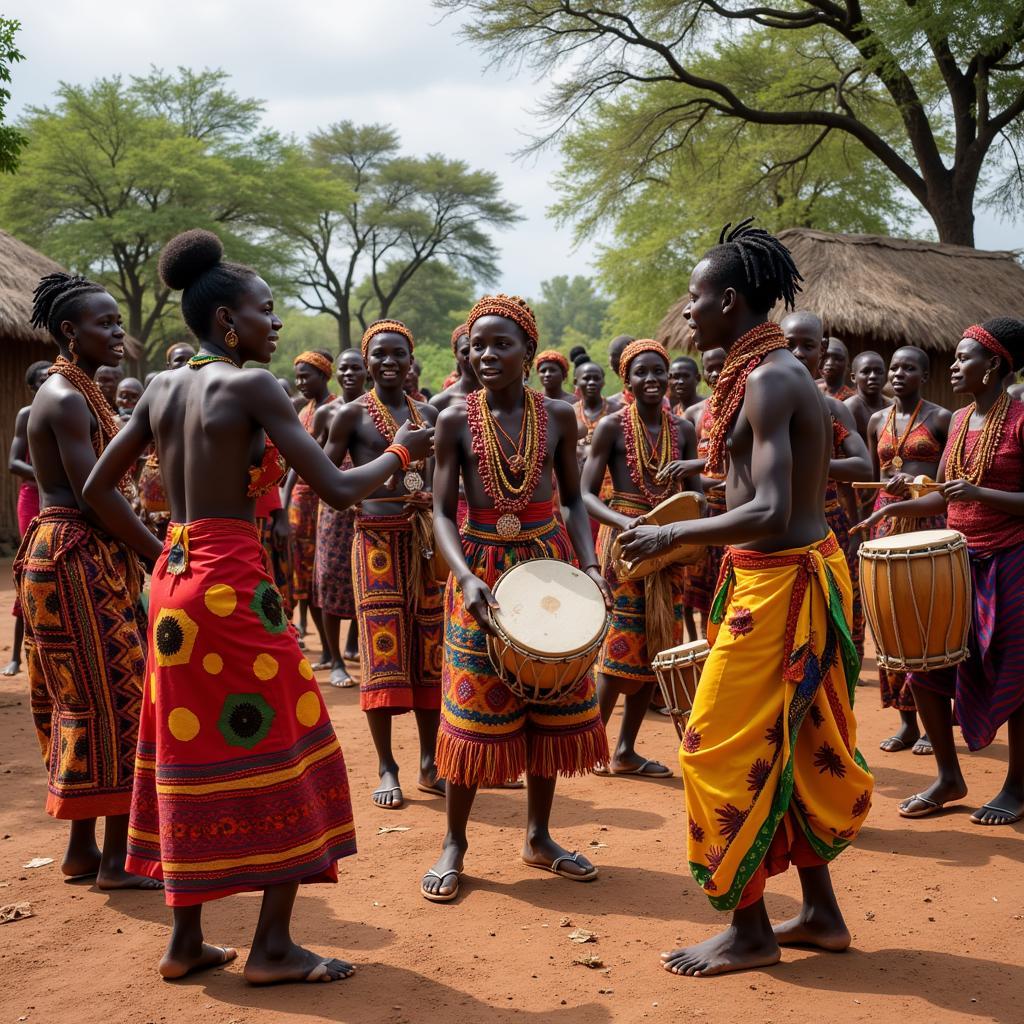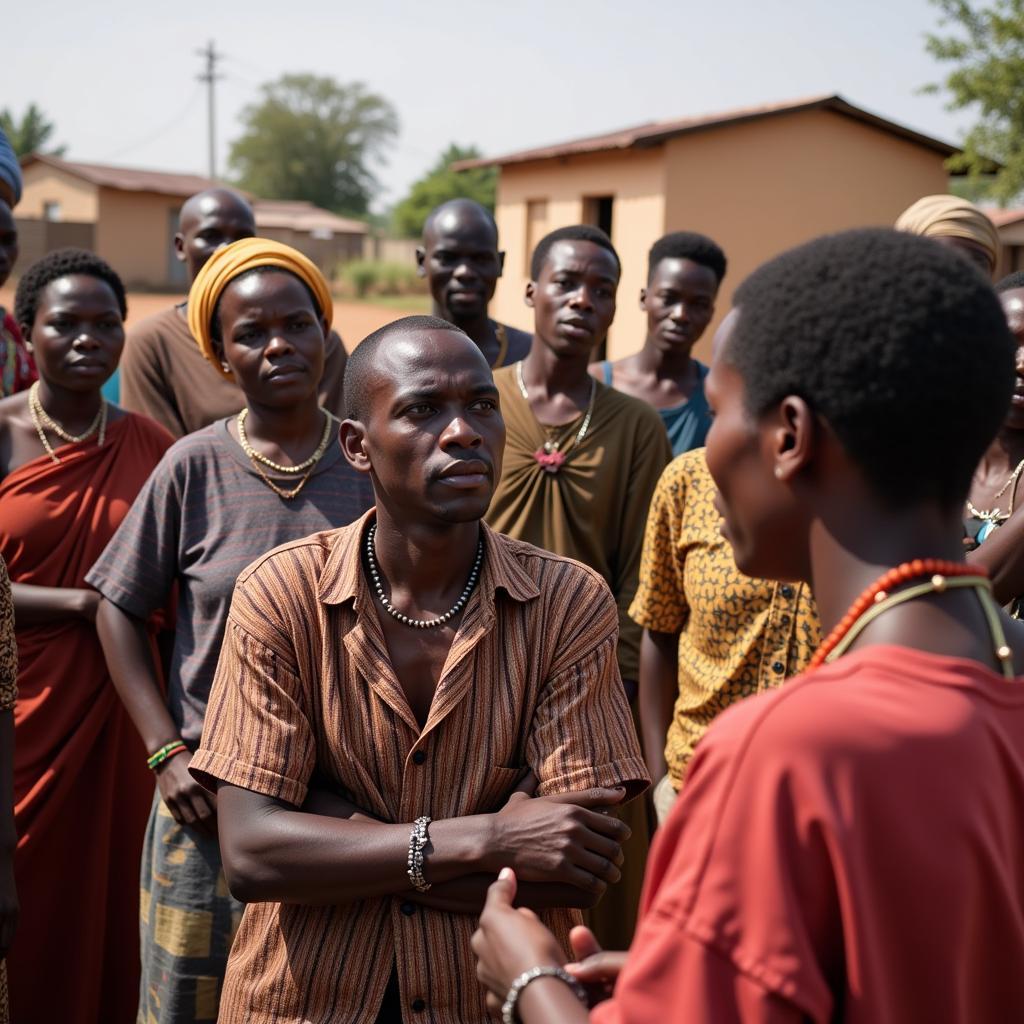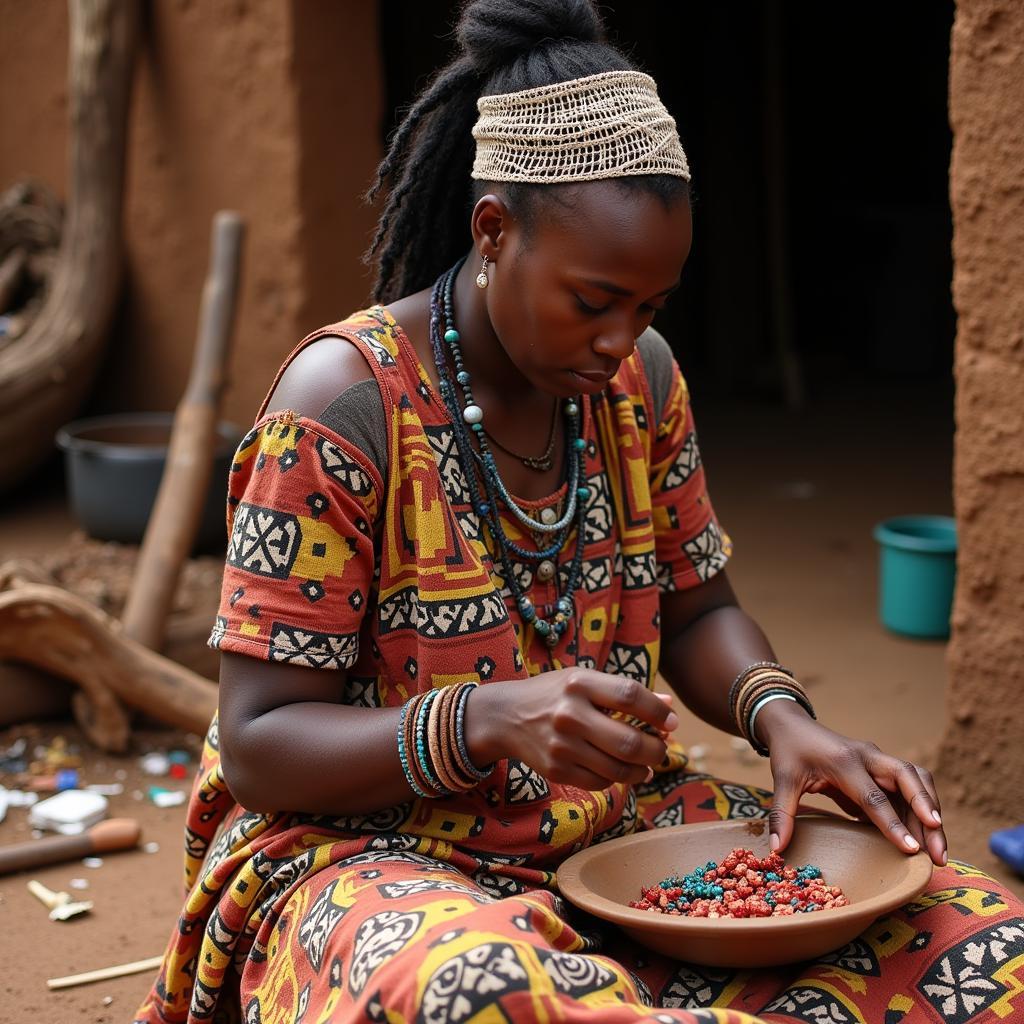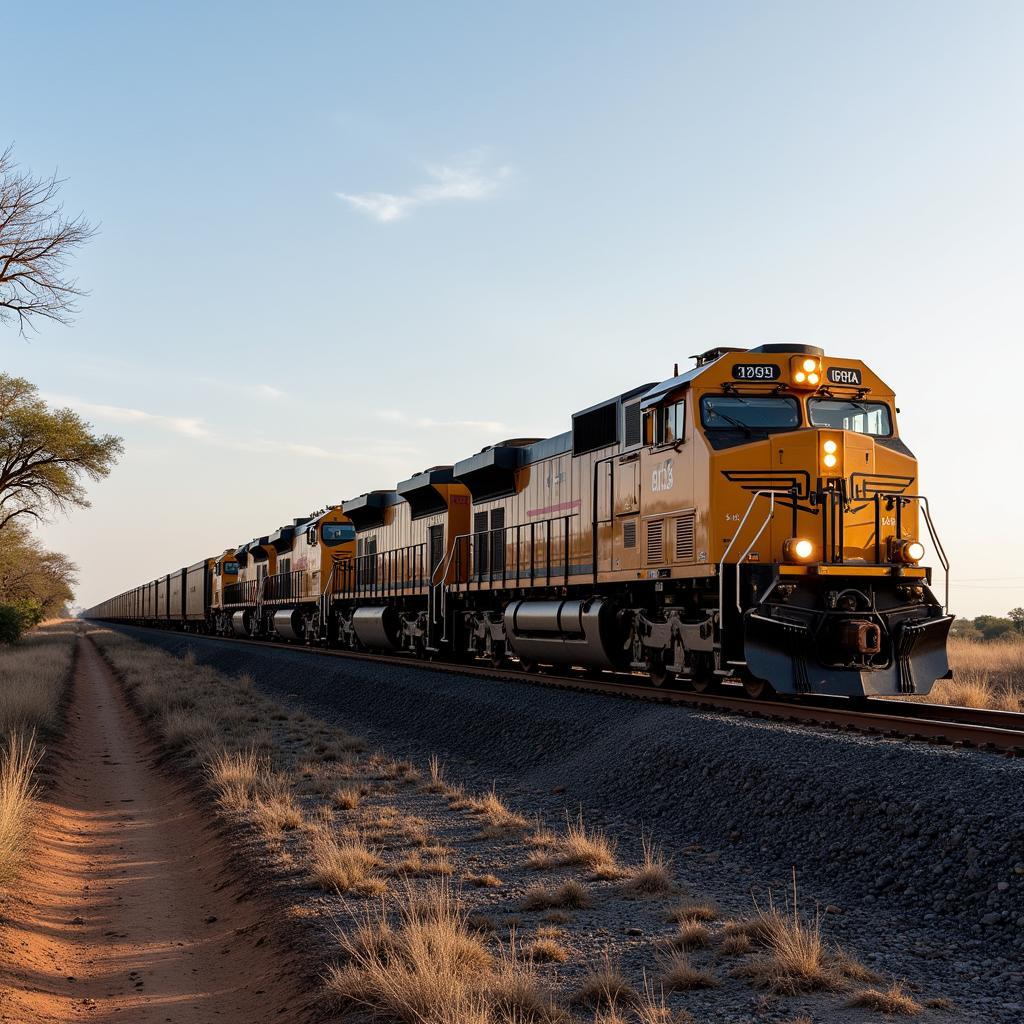Exploring African Adivasi Culture
African Adivasi Culture is a complex and often misunderstood topic. While the term “Adivasi” is commonly associated with indigenous groups in India, its application to African communities requires careful consideration. This article aims to explore the nuances of indigenous cultures in Africa, acknowledging the diverse traditions and experiences across the continent. We’ll delve into the richness of African indigenous knowledge, their unique relationship with the land, and the challenges they face in the modern world.
African indigenous communities, much like Adivasi groups in other parts of the world, maintain a deep connection with their ancestral lands. This connection is not merely geographical; it’s spiritual, cultural, and economic. Their traditional knowledge systems, passed down through generations, encompass a vast understanding of medicinal plants, sustainable agriculture, and the delicate balance of ecosystems. For many, their identity is inextricably linked to their land and the traditions it sustains. This connection is vital to their survival and resilience in the face of increasing pressures from globalization and modernization. It’s important to understand the diversity within these communities. Generalizing “African Adivasi culture” can obscure the unique customs, languages, and beliefs that distinguish each group.
African indigenous knowledge offers a valuable lens through which to understand the deep connection between these communities and their environment.
The Rich Tapestry of Indigenous Traditions in Africa
From the nomadic pastoralists of the Sahel to the hunter-gatherer communities of the Congo Basin, Africa boasts an extraordinary range of indigenous cultures. Each group possesses a unique set of customs, beliefs, and artistic expressions that have evolved over centuries. These traditions are often deeply intertwined with the natural world, reflecting a profound respect for the environment and the resources it provides. Music, dance, storytelling, and visual arts play a vital role in preserving and transmitting cultural knowledge, connecting generations and reinforcing community bonds. Exploring these diverse cultural expressions provides invaluable insights into the human experience.
 African Indigenous Music and Dance Ceremony
African Indigenous Music and Dance Ceremony
Many indigenous communities face ongoing struggles to protect their land rights and cultural heritage. Land dispossession, resource exploitation, and cultural assimilation pose significant threats to their way of life. Recognizing and addressing these challenges is crucial to ensuring their survival and empowering them to thrive in a rapidly changing world. Learning about these challenges is an essential step towards promoting respect, understanding, and collaboration.
African Adivasi Culture: Understanding the Challenges
While the term “Adivasi” might not be universally recognized in Africa, the challenges faced by indigenous communities resonate across continents. Issues of land rights, cultural preservation, and access to resources are common themes in the struggles of marginalized groups worldwide. The impact of climate change, deforestation, and unsustainable development disproportionately affects indigenous populations, threatening their traditional livelihoods and cultural heritage. Understanding these shared challenges can foster solidarity and promote collaborative efforts to address them effectively.
 African Indigenous Community Meeting to Discuss Land Rights
African Indigenous Community Meeting to Discuss Land Rights
African adivasi fight provides a deeper understanding of the complex issues these communities face.
Understanding the specific struggles of individual communities requires a nuanced approach, acknowledging the historical and political context of each region. While there are common threads connecting indigenous experiences globally, it’s crucial to avoid generalizations and appreciate the diversity of their situations. This understanding is vital for effective advocacy and meaningful support.
Preserving and Celebrating Indigenous Cultures
Despite the challenges they face, African indigenous communities continue to demonstrate remarkable resilience and cultural vitality. Their efforts to preserve and revitalize their languages, traditions, and knowledge systems are inspiring examples of cultural resistance. Supporting these efforts through cultural exchange programs, educational initiatives, and community-based projects is essential to ensuring the continuity of these rich cultural heritages for future generations.
African community living in india explores another dimension of cultural exchange and adaptation.
 African Indigenous Craftswoman Creating Traditional Art
African Indigenous Craftswoman Creating Traditional Art
Learning from indigenous knowledge systems can provide valuable insights into sustainable living practices, environmental conservation, and holistic approaches to health and well-being. By recognizing and valuing the contributions of indigenous cultures, we can enrich our understanding of the world and create a more just and sustainable future for all.
Conclusion
African Adivasi culture, though a complex and nuanced topic, offers a rich tapestry of traditions, knowledge, and resilience. By acknowledging the diversity of indigenous communities across the continent and understanding the challenges they face, we can contribute to a more inclusive and equitable future that celebrates and protects their cultural heritage. It’s crucial to approach the topic with sensitivity and respect, recognizing the agency and self-determination of indigenous peoples. Let us continue to learn, listen, and collaborate to support their efforts to preserve their cultures and thrive in a rapidly changing world.
FAQ
- What does “Adivasi” mean?
- How diverse are indigenous cultures in Africa?
- What are some of the key challenges faced by African indigenous communities?
- How can we support the preservation of indigenous cultures in Africa?
- What can we learn from African indigenous knowledge systems?
- What is the significance of land to African indigenous communities?
- How does climate change affect African indigenous populations?
Scenarios
- Scenario 1: A researcher is interested in studying the traditional medicinal practices of a specific indigenous group in East Africa.
- Scenario 2: A non-profit organization wants to develop a community-based project to support sustainable agriculture among indigenous farmers in Southern Africa.
- Scenario 3: A student is writing a research paper on the impact of land dispossession on indigenous communities in West Africa.
Further Exploration
For more information on related topics, please explore the following articles: African jungle adivasi long fuck and African Ebu.
Need assistance? Contact us 24/7:
Phone: +255768904061
Email: kaka.mag@gmail.com
Address: Mbarali DC Mawindi, Kangaga, Tanzania.


